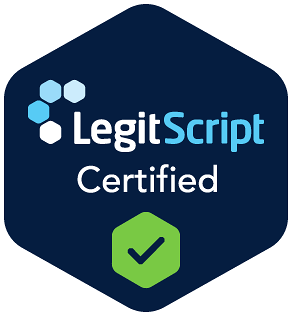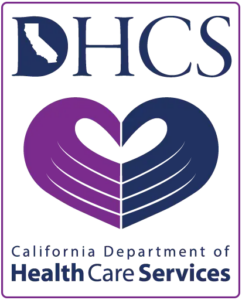Dialectical behavior therapy (DBT) is a type of cognitive-behavioral therapy designed to help people manage intense emotions and improve their relationships. It combines traditional cognitive-behavioral techniques with mindfulness practices to help clients develop skills in four key areas: mindfulness, distress tolerance, emotion regulation, and interpersonal effectiveness. DBT is particularly effective for treating a range of mental health conditions, including borderline personality disorder, depression, anxiety, and substance use disorders.

At Surf City Detox in Huntington Beach, California, we incorporate DBT into our treatment programs to help our clients develop healthier coping mechanisms and achieve lasting recovery. Our experienced therapists provide personalized DBT sessions to address each client’s unique needs.
- Thoughts: Our thoughts shape how we view and react to situations. Negative or distorted thoughts can trigger feelings of sadness, worry, or frustration, leading to unhealthy actions.
- Feelings: Emotions stem from our thoughts. For instance, if we think something bad will happen, we might feel anxious, fearful, or hopeless, which affects our mood and outlook.
- Behavior: Our behaviors are usually a response to how we think and feel. Negative thoughts and emotions can drive people to act in ways that make the situation worse, creating a harmful cycle. By breaking this cycle, people can start to change their reactions and improve their emotional well-being.
What Is The Difference Between DBT and CBT?
CBT mainly helps people identify and challenge negative thought patterns, aiming to change how they think and behave. It’s widely used for conditions like anxiety and depression, where the focus is on changing unhelpful thinking and behavior.
DBT, on the other hand, includes all the key elements of CBT but adds a stronger emphasis on emotional regulation, mindfulness, and acceptance. DBT is particularly effective for people who experience intense emotional swings or struggle with issues like addiction, self-harm, or borderline personality disorder. It teaches people how to tolerate distress, practice mindfulness, and improve interpersonal relationships—skills that help them handle their emotions without turning to unhealthy coping mechanisms.
In short, while CBT focuses on changing thoughts and behaviors, DBT also helps people manage and accept their emotions, making it ideal for those with more complex emotional challenges.
How Can Mindfulness Shift How People Handle Strong Emotions?

Benefits of DBT for Addiction
- Improved Emotional Regulation: DBT teaches people how to manage their intense emotions, reducing the urge to use substances as a way to cope.
- Increased Mindfulness: By practicing mindfulness, people learn to stay present and make thoughtful decisions, helping them resist cravings and avoid relapse.
- Interpersonal Effectiveness: DBT improves communication and relationship skills, helping people build healthier connections and support networks. Strong relationships are crucial for maintaining sobriety.
- Reduced Self-Destructive Behaviors: DBT focuses on recognizing and changing harmful behaviors, and helping people break free from the cycle of addiction.
- Building Tolerance for Distress: Through distress tolerance skills, people can handle emotional pain without turning to substances, leading to more stable and fulfilling lives.
- Emotion Regulation: DBT helps people manage intense emotions that often trigger substance use. By learning to regulate their emotions, they can reduce the urge to use drugs or alcohol as a coping mechanism.
- Distress Tolerance: This skill teaches people how to tolerate and survive crises without resorting to substance use. It helps them develop healthier ways to handle stress and discomfort.
- Relapse Prevention: By addressing the underlying emotional and psychological issues that contribute to addiction, DBT reduces the risk of relapse and supports long-term recovery.
How Does Dialectical Behavior Therapy Work?
- Assessment and Goal Setting: The process begins with an assessment to understand the person’s unique challenges. Together with a therapist, the person sets goals for treatment, which may include reducing substance use and improving emotional regulation.
- Individual Therapy: In individual therapy, people work one-on-one with a trained DBT therapist to address personal issues and develop coping skills. This personalized approach helps people focus on their specific addiction triggers and emotional struggles.
- Skills Training Group: DBT includes a group component where people learn core skills in four key areas: mindfulness, distress tolerance, emotional regulation, and interpersonal effectiveness. These skills help people manage cravings and navigate difficult situations without resorting to substance use.
- Phone Coaching: Between sessions, people can access phone coaching to get immediate support when they face challenges, ensuring they stay on track with their recovery goals.
- Homework Assignments: People are given homework assignments to practice DBT skills in real-life situations. This reinforces learning and helps integrate new behaviors into daily life.
- Therapist Consultation Team: Therapists work together in a consultation team to ensure the best possible care for each person. This collaborative approach allows for shared insights and strategies to address addiction-related challenges.
- Ongoing Evaluation: Progress is regularly evaluated to ensure the treatment plan remains effective and adjustments are made as needed. This ensures the person continues to receive the most beneficial support.
DBT for addiction works by addressing the emotional and psychological factors that contribute to substance use, helping people develop healthier coping mechanisms and achieve lasting recovery.
DBT Techniques for Substance Use Disorders

Mindfulness helps people stay present and aware of their thoughts and feelings without reacting impulsively. It’s particularly useful for managing cravings and triggers, allowing people to pause and make thoughtful choices instead of resorting to substance use.
Distress tolerance skills help people handle intense emotions and discomfort without turning to substances. These techniques teach people how to ride out emotional waves, building resilience against stress and anxiety.
Emotional regulation skills help people identify and manage overwhelming feelings. By learning to recognize early signs of emotional distress, people can intervene before they engage in destructive behaviors like substance use.
DBT also teaches people how to improve communication and relationship skills, which is crucial for maintaining a healthy support system. Healthy relationships can help people stay grounded in recovery, reducing the isolation that often leads to relapse.
This technique involves breaking down the sequence of events that lead to substance use. By understanding the triggers and consequences, people can develop strategies to interrupt the cycle and prevent relapse.
In addition to the core DBT techniques, other important skills help people improve their well-being and reduce the risk of relapse. One key skill is Radical Acceptance, which involves learning to accept life as it is, without resisting or judging situations. This helps people stop blaming themselves and stay focused on their recovery journey. Validation is another important skill, which involves recognizing and accepting a person’s feelings as they are. This helps people feel heard and understood, making it less likely they will turn to substances as a way to cope with their emotions.
DBT at Surf City Detox Can Help You or a Loved One Recover
If you or a loved one are ready to take the first step toward lasting recovery, reach out to us today. Our experienced team at Surf City Detox is here to guide you through DBT and equip you with the skills needed to live a healthier, substance-free life.
Surf City Detox Accepts Insurance
We accept many insurance plans to help cover the cost of addiction treatment. Contact your provider to get more information or call our office to reach an intake specialist.


















